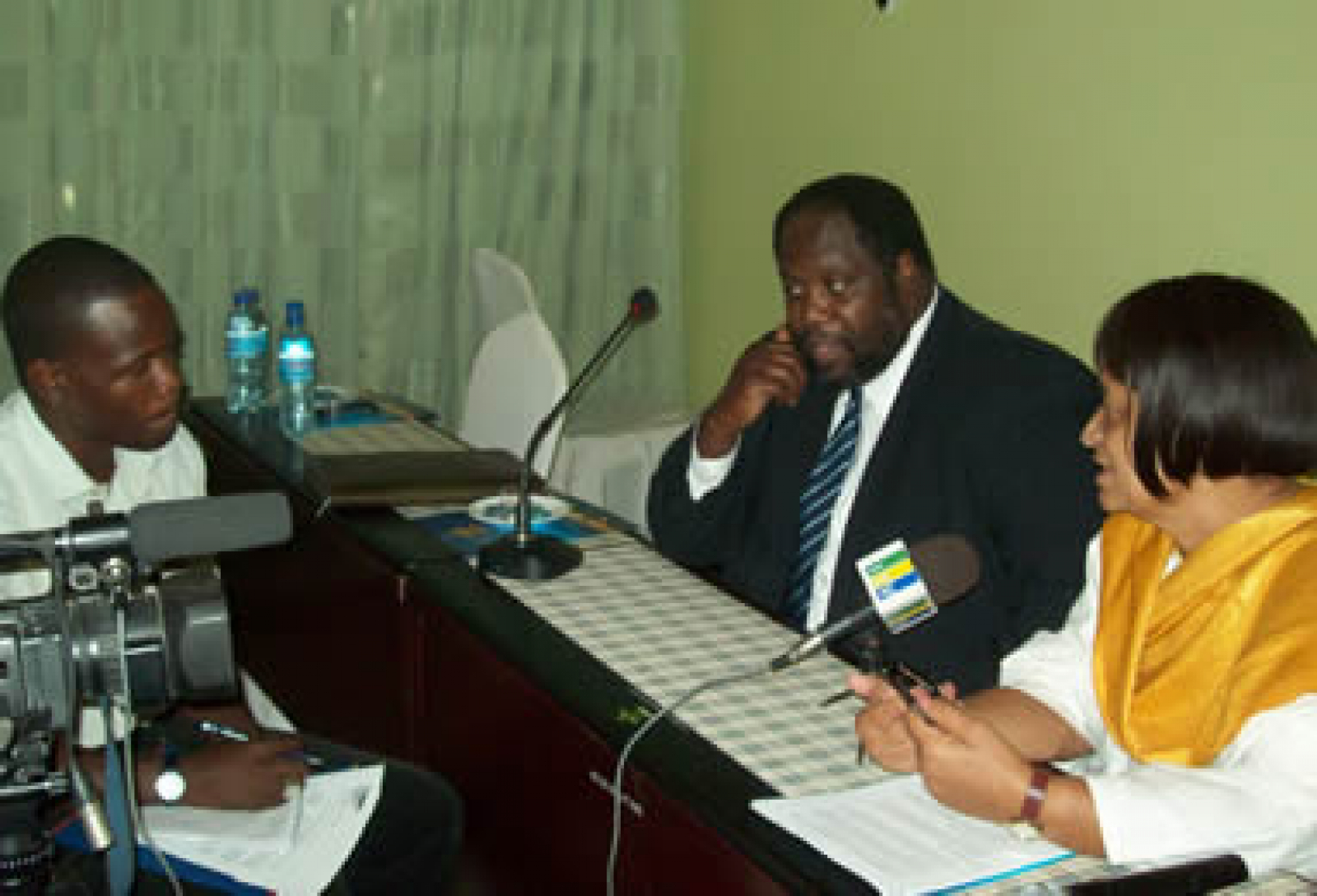
SHARE
The October 2010 elections represent a unique opportunity for Tanzanians to further consolidate the democratic process in their country, and while Tanzania’s electoral process reflects genuine innovation and reform, there remains a need to strengthen several aspects of the electoral process, a delegation organized by NDI said in a statement released on May 21 in Dar es Salaam.
The delegation included Nora Schimming-Chase, former vice chair of the Southern Africa Development Community’s Parliamentary Forum; Ken Nnamani, former president of the Nigerian Senate; Keith Jennings, NDI’s Southern and East Africa regional director; Heather Kashner, NDI Uganda resident director; Mary O’Hagan, NDI Kenya senior resident director; and Ivan Doherty, NDI’s director of political party programs.
The group was in Tanzania from May 17-21, which included a visit to Zanzibar, to assess the status of election preparations and the general electoral environment through a series of meetings with the National Electoral Commission (NEC), the Zanzibar Electoral Commission (ZEC), government officials, political party leaders, representatives of civil society, the media and the international community.
The referendum scheduled to take place on July 31, 2010, that could enable Zanzibar to form a Government of National Unity (GNU) is a creative and determined reconciliation approach by CCM and CUF to bring about peace, stability and development in Zanzibar, the statement said.
The delegation noted that the Election Expenses Act – a new election law aimed at curbing corrupt practices that have negatively impacted past elections – offers an opportunity to increase transparency and curtail corrupt nomination and campaign practices, but it is difficult to judge its impact without supporting regulations being in place. Some concerns were expressed to the delegation that the Act could exacerbate the resource imbalance between the government and opposition parties and skew the playing field more dramatically toward the ruling party.
The voter registration process is also an area that requires some improvement as election day approaches. Problems highlighted to the delegation included shortages of materials and staff, and most significantly, an inadequate period of time allowed for registration. The NEC agreed to extend registration in Dar es Salaam by two days to address some of these issues.
The NDI delegation believes that, despite current shortcomings in the electoral process, there remains sufficient time to resolve these problems, if there is adequate political will and a concentrated effort. To instill confidence in the process, political parties, NEC and ZEC officials, the media, civil society and other actors should continue to dedicate themselves in the time remaining to achieve an election that will be widely accepted by all Tanzanians, the NDI statement said.
The delegation offered a series of recommendations that it hoped would be helpful in promoting inclusive, transparent and credible elections. They included urging:
· The governments of Tanzania and Zanzibar to provide promised funding to the NEC and the ZEC to fill the existing funding gaps, especially those related to preparations for the July 31st Government of National Unity Referendum;
· That the regulatory framework that is being developed and will provide guidelines for implementation and monitoring of the newly adopted Elections Expenses Act, should not be used as a restrictive mechanism or in a retroactive manner that may appear to be selective in prosecuting political competitors;
· That the NEC should officially release its electoral calendar as soon as possible so as to provide timelines and deadlines to interested parties;
· The parties to the GNU agreement should work to ensure that their supporters and members understand what a government of national unity could mean for political and economic development in Zanzibar; and
· Political parties and candidates to abide by the political parties’ Code of Conduct.
The work of the delegation was based on the Declaration of Principles for International Election Observation, launched at the United Nations in 2005 and endorsed by NDI and 35 other international and intergovernmental organizations.
Pictured Above: Two members of the delegation – Keith Jennings, NDI’s Southern and East Africa regional director and Ambassador Nora Schimming-Chase, former deputy chair of the Southern
Africa Development Community’s Parliamentary Forum – conduct an interview at the press conference announcing their findings.
Published May 24, 2010


